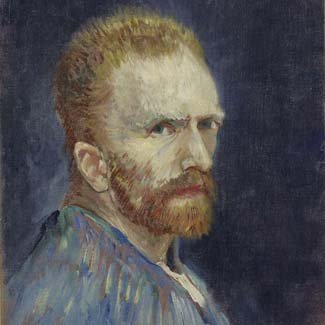The Mirror and the Mask
dal 5/2/2007 al 19/5/2007
Segnalato da
5/2/2007
The Mirror and the Mask
Museo Thyssen-Bornemisza, Madrid
The Portrait in the Age of Picasso. Through works by artists such as Pablo Picasso, Vincent van Gogh, Paul Gauguin, Salvador Dali', Francis Bacon and Andy Warhol, this exhibition analyses the evolution of portraiture in the 20th century, a period that saw a radical shift in the conception of art itself.

The Portrait in the Age of Picasso
Through works by artists such as Pablo Picasso, Vincent van Gogh, Paul
Gauguin, Salvador Dalí, Francis Bacon and Andy Warhol, this exhibition
analyses the evolution of portraiture in the 20th century. The exhibition
will first be shown at the Museo Thyssen-Bornemmisza and the Fundación
Caja Madrid, and then travels to the Kimbell Art Museum, Fort Worth
(Texas), which is the co-organiser together with the other two
institutions. It is the first in-depth study of this traditional genre
within European painting, which acquired new importance within
international art in the modern era.
The Mirror and the Mask: Portraiture in the Age of Picasso looks at the survival and transformation of the portrait in avant-garde art between 1890 and 1990, a period that saw a radical shift in the conception of art itself. During these years, modern man’s crisis of identity and art’s crisis regarding the truth of its images particularly influenced the development of this genre. In addition, as photography became the principal vehicle for capturing a lifelike representation of the sitter and artists called into question their traditional relationship with the patron, it might be thought that portraiture was doomed to extinction. In fact, it has been and continues to be a dynamic force within modern art. Not only is it clear that all the key artists of the 20th century experimented with this genre, but in addition many of them made it the key theme within their work.
For the first time, the period in question saw the portrait move away from its traditional function and types to bring about a break between the model and its faithful imitation. The result was to offer alternatives or equivalents through the transformation of the individual into a motif unique to the artist. When approaching the portrait, the modern artist could remain close to or confront traditional models, penetrate or falsify identities and create stereotypes. In addition, the modern portrait could reveal the sitters’ fragility and vulnerability.
Image: Vincent van Gogh, autoportrait
Museo Thyssen-Bornemmisza
Paseo del Prado, 8 - Madrid



